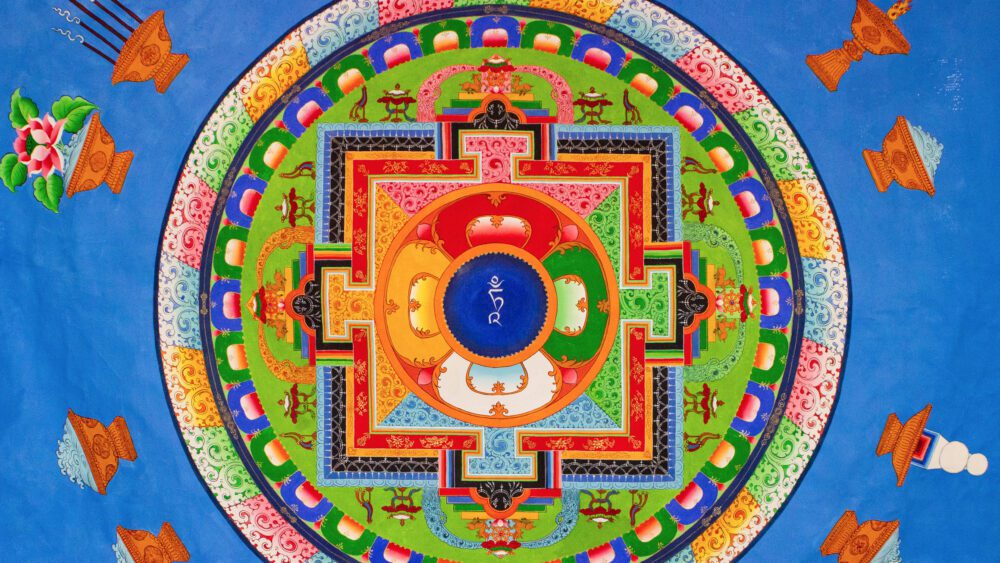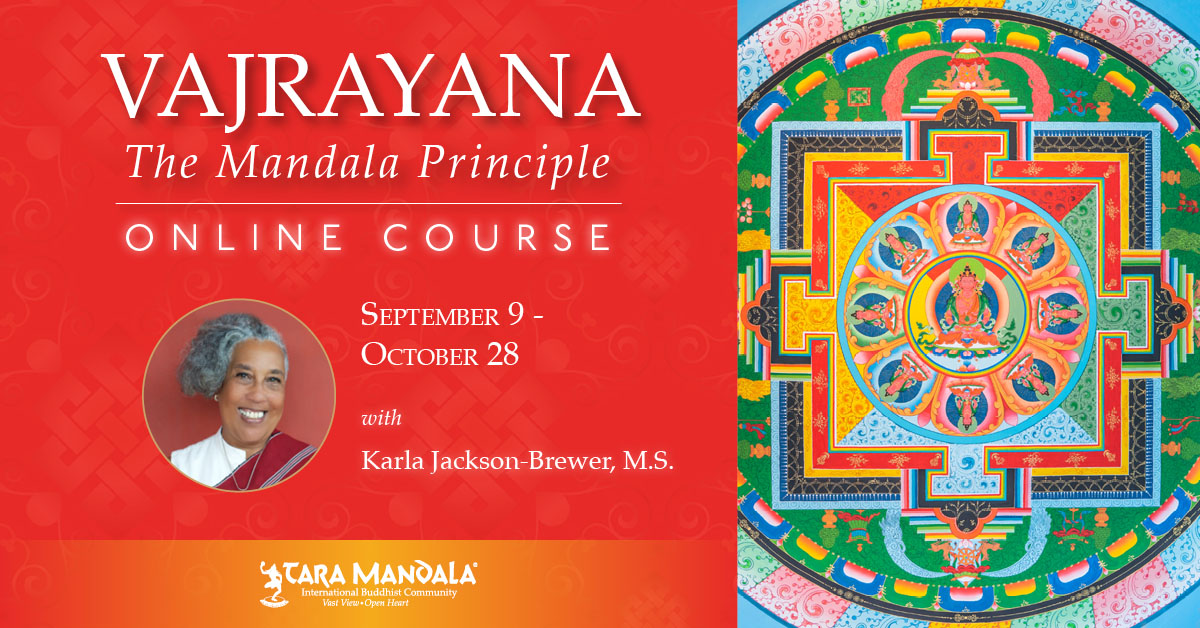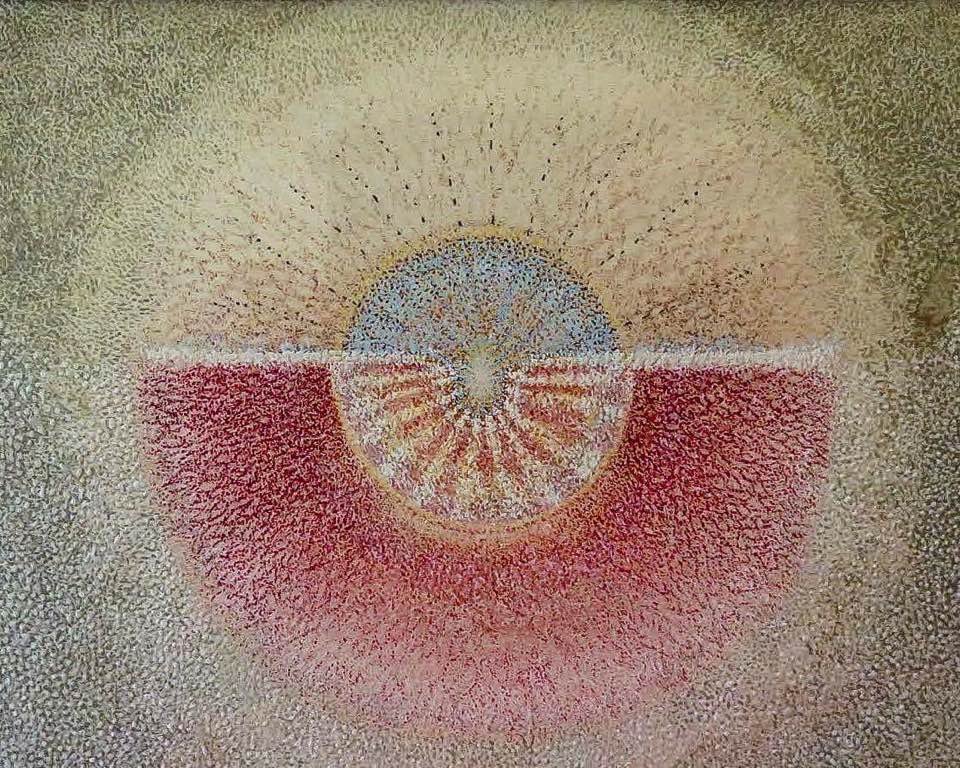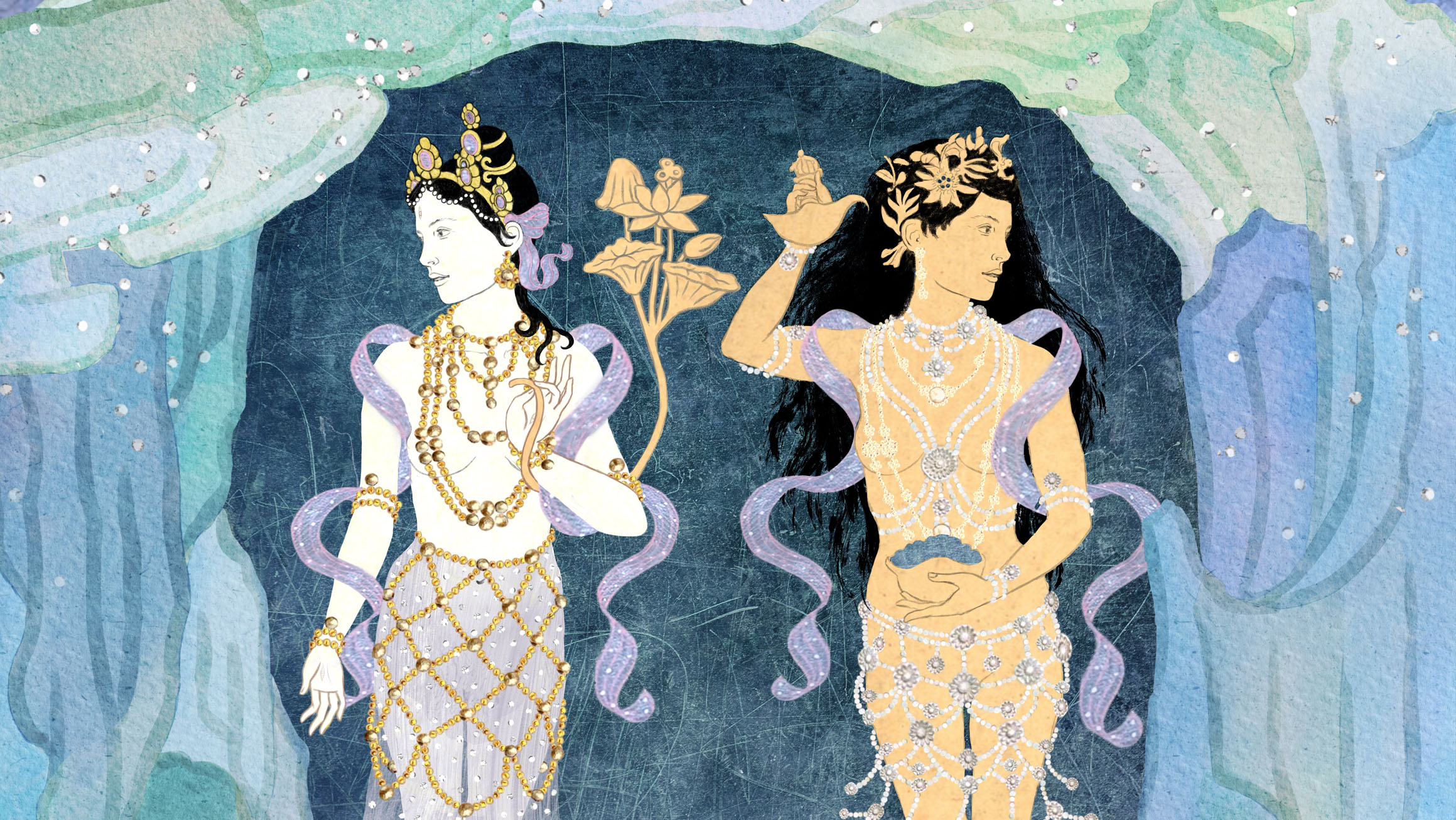“The wholeness suggested by the mandala pattern … creates an experience of integration and order.”
In this video, Lopön Karla shares the “Mandala Principle” in Tibetan Buddhism. To watch, click on the video.
Join us for an 8-week in-depth historical and philosophical overview of Vajrayana and an exploration of the mandala principle as a guiding framework for understanding and embodying the richness of the Vajrayana path.
This is the first year that the Vajrayana teachings will be offered in an online course format providing an accessible opportunity for anyone in our global sangha to receive these teachings and the transmission of the Buddha Mandala and Yab Yum Mandala practices.
We will have the fortune of having Karla Jackson-Brewer as the teacher leading practitioners through these teachings over 8 weeks of immersive content, including a weekly ‘live’ webcast session with Karla, that will offer teachings, guided meditations, and time for Q&A. We hope you find the access to this offering of great benefit!
Webcast Schedule
To see how this converts to your time zone, click here
• October 7, 14, 21, 28
Meditation practice sessions will take place twice a week between September 10th and November 1st.
• Sessions with Lisa Erickson (assistant teacher): Saturdays 9:00-11:00am MT
• Optional Study Group: 11:00-12:00pm MT
(immediately follows the meditation practice)
THE POWER OF THE MANDALA
Lama Tsultrim Allione’s Reflections on Dr. Carl Jung
Excerpt from Lama Tsultrim’s book Wisdom Rising:
The Western world was first made aware of the potency of the mandala as a psychological healing tool by the Swiss psychologist Dr. Carl G. Jung … Admittedly to preserve his own sanity, he began experimenting with drawing personal mandalas daily. Every morning he drew or painted some form of a circular shape with four quadrants in a small notebook …
The egocentric self he saw as the center of consciousness, whereas the Self he saw as the center of the whole being, including the ego, consciousness, and the unconscious shadow. This Self was the unification of the conscious and unconscious mind, and this state of integration was symbolized by the circle divided into four quadrants, which he called the mandala. The Self, he believed, was whole at birth, but it was lost in the development of the ego differentiation necessary to establish oneself in the external world …
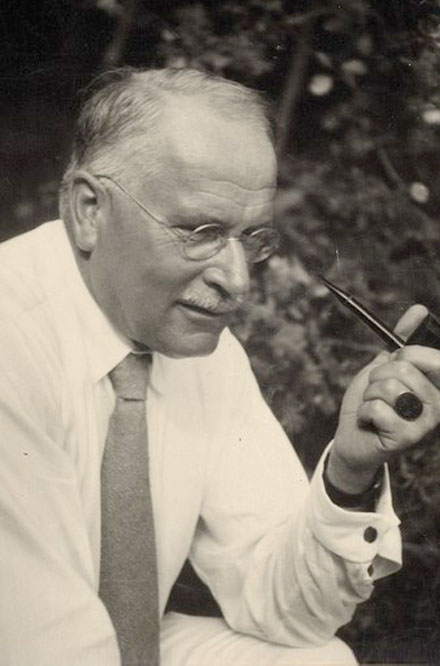
Photo: Dr. Carl Jung (1875–1961)
Photo Credit: Wikipedia
We hope you can join us connecting with the Vajrayana teachings and working with the wisdom of the mandala.
~With Blessings,
Tara Mandala

